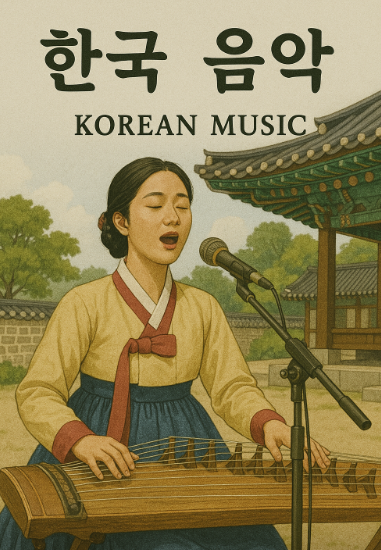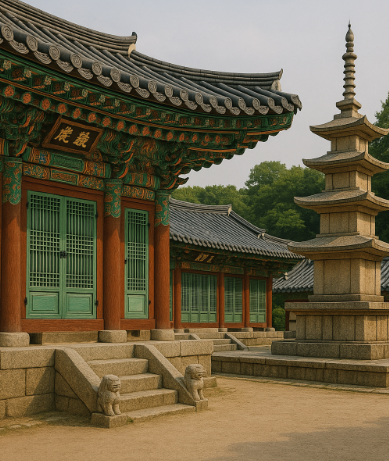Discovering Korean Literature: A Journey Through Time
Korean literature, with its unique voice and rich historical background, offers readers worldwide a glimpse into the heart of Korean culture and society. It has evolved significantly over the centuries, reflecting the values, struggles, and aspirations of the Korean people. This article explores the key elements and milestones in Korean literature, making it an engaging journey for literature enthusiasts around the globe.
Traditional Korean Literature
Traditional Korean literature primarily consisted of oral narratives, poetry, and chronicles. Early works were deeply influenced by the philosophical and religious context of the time, especially Confucianism, Buddhism, and Taoism. Among the notable early works is the “Samguk Yusa,” a collection of legends, folktales, and historical accounts dating back to the Kingdoms of Korea. These works often explored themes of morality, virtue, and the supernatural.
Goryeo and Joseon Dynasties: The Flourishing of Written Literature
During the Goryeo and Joseon Dynasties, Korean literature saw a transition from oral to written forms. The invention of the Korean script Hangul in the 15th century by King Sejong the Great marked a significant turning point, democratizing literacy and allowing literature to flourish. Genres such as sijo (a form of Korean poetry) and gasa (a type of lyrical song) became popular. These lyrical forms often reflected personal and communal sentiments, as well as socio-political commentary.
Modern Korean Literature: Reflection and Change
The 20th century introduced modern Korean literature, which was heavily influenced by historical events such as Japanese occupation, the Korean War, and rapid industrialization. Modern Korean writers produced works that addressed themes of identity, freedom, and conflict. Yi Kwang-su’s “The Heartless” is often cited as the first modern Korean novel, illustrating contemporary issues of love and modernity. This era also saw the rise of female writers who challenged traditional roles and explored new themes.
Contemporary Korean Literature: Global Recognition
In recent years, Korean literature has gained global recognition, in part due to translation and international awards. Authors such as Han Kang and her novel “The Vegetarian” have won prestigious accolades like the Man Booker International Prize. Contemporary Korean literature often explores universal themes such as loneliness, identity, and human rights while maintaining a distinct Korean cultural perspective. The use of digital platforms has further expanded the reach and influence of Korean literary works today.
Key Elements of Korean Literary Style
Korean literature is celebrated for its emotional depth and intricate character development. Writers often use rhetorical devices such as symbolism and allegory to convey complex emotions and societal critiques. Humor and satire are also prevalent, offering a unique lens through which to view human nature and society. Moreover, Korean literature frequently intertwines historical context with modern narratives, creating a rich tapestry of storytelling that resonates with readers both familiar and foreign to its cultural landscape.
Sample of Renowned Korean Literary Works
| Title | Author | Genre | Time Period |
|---|---|---|---|
| The Tale of Hong Gildong | Heo Gyun | Fiction | 17th Century |
| The Heartless | Yi Kwang-su | Modern Novel | 1917 |
| The Vegetarian | Han Kang | Contemporary Fiction | 2007 |
Frequently Asked Questions
1. What is Hangul, and why is it significant?
Hangul is the Korean alphabet, invented in the 15th century by King Sejong the Great. It significantly improved literacy rates and allowed for greater expression in written Korean literature.
2. Who are some prominent contemporary Korean authors?
Prominent contemporary Korean authors include Han Kang, Hwang Sok-yong, and Kim Young-ha, all of whom have gained international recognition for their works.
Summary
- Traditional Korean literature was largely oral, focusing on morality and the supernatural.
- The invention of Hangul spurred the growth of written literature during the Goryeo and Joseon dynasties.
- Modern Korean literature reflects historical events, with themes of identity and conflict.
- Contemporary Korean literature enjoys global recognition for its universal themes and cultural insights.
#KoreanLiterature #Hangul #ModernKoreanWriters #HanKang #GlobalLiterature #TraditionalKoreanPoetry #JoseonDynasty #GoryeoDynasty #CulturalHeritage #KoreanAuthors #KoreanFiction #TheVegetarian #YiKwangsu #HeoGyun #KingSejong #SijoPoetry #ContemporaryFiction #AsianLiterature #LiteraryStyle #KoreanCulture #ManBookerPrize #HistoricalLiterature #IdentityInLiterature #CulturalDiversity #LiteracyInKorea #KoreanScripts #LiteraryHistory #EastAsianStories #HumanRightsInLiterature


